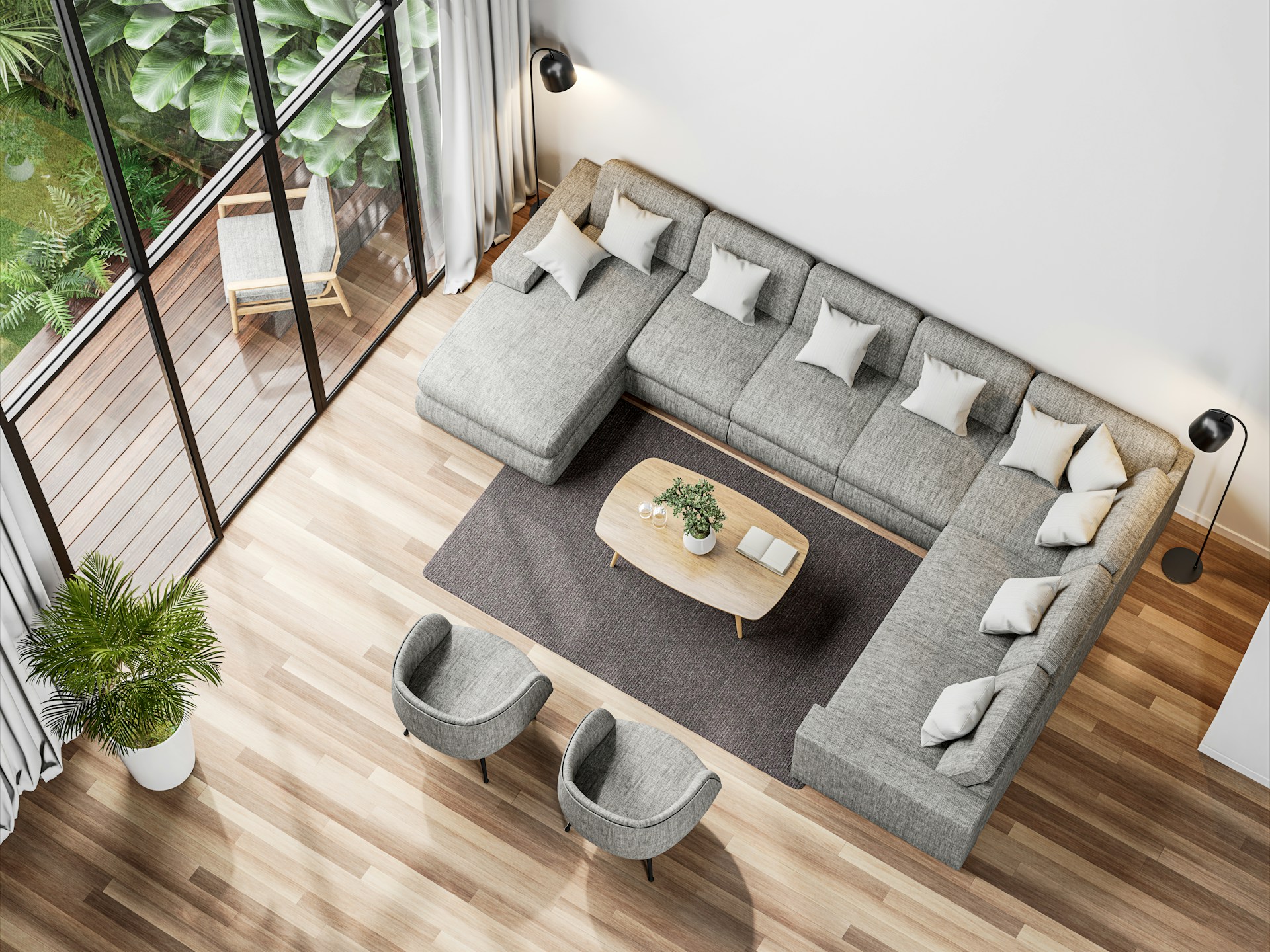How to Budget for Waterproof Flooring: A Comprehensive Guide
Choosing the right waterproof flooring can enhance your home’s value and durability, especially in moisture-prone areas like kitchens, bathrooms, and basements. Waterproof options such as luxury vinyl plank (LVP) and luxury vinyl tile (LVT) are popular choices that provide peace of mind while adding style. However, an essential part of your flooring journey is knowing how to budget effectively. In this guide, Checkpoint Flooring Solutions will walk you through budgeting essentials for waterproof flooring, from materials and installation to maintenance considerations, helping you make informed decisions without breaking the bank.
1. Understanding the Basics: What You’re Paying For
Budgeting for waterproof flooring involves considering more than just the materials. You’ll want to account for other elements that influence the final cost, including installation, maintenance, and potentially removing existing flooring. Being aware of these components will help you create a realistic budget that aligns with your project’s scope and style preferences.
2. Types of Waterproof Flooring and Material Choices
When choosing waterproof flooring, you have various materials to consider, with LVP and LVT being some of the most sought-after options. Each type offers unique aesthetic qualities, with LVP mimicking the appearance of hardwood and LVT offering a tile-like finish.
For waterproof flooring, the quality of the material is essential. Higher-quality products may have enhanced wear layers and realistic finishes, providing greater durability and a premium appearance. Selecting a flooring type based on your preferred style and usage needs is key to ensuring a good balance between aesthetics and longevity.
3. Additional Considerations for a Complete Budget
Beyond selecting the material, there are other factors to think about in your waterproof flooring budget. Here’s a breakdown of additional aspects to consider for a thorough budgeting approach:
- Installation Costs: Professional waterproof flooring installation ensures a quality finish and maximizes the longevity of your investment. At Checkpoint Flooring Solutions, we recommend hiring a professional for the installation process, as it provides a seamless finish, proper sealing, and increased durability over time.
- Removing Old Flooring: If you’re replacing existing flooring, factor in the need for removal and disposal of the old materials. This step is sometimes overlooked in DIY projects, but professional removal can ensure the new floor is laid smoothly and safely.
- Underlayment and Padding: Depending on your specific flooring needs, additional underlayment or padding may be required. This layer provides additional comfort underfoot and can enhance soundproofing for a more enjoyable home environment.
4. Professional Installation vs. DIY Install
One of the biggest budgeting decisions is choosing between professional installation and a DIY approach. Each has its benefits, and the choice largely depends on your skills, budget, and desired outcome.
- DIY Installation: If you’re a DIY enthusiast, installing vinyl flooring yourself can be a cost-effective solution, particularly for straightforward or smaller spaces. DIY install may save on labor costs; however, achieving a high-quality finish requires attention to detail and the right tools. For those willing to invest the time, this approach can work well for simpler projects.
- Professional Installation: For those looking to achieve a professional-grade finish, hiring experts is highly recommended. Professional installers bring experience, skill, and equipment, ensuring your waterproof flooring is perfectly placed, securely sealed, and protected. Although it’s an investment, professional installation often prevents issues that can arise from an imperfect DIY job, ultimately saving on potential repairs.
5. Long-Term Maintenance Costs
While waterproof floors are relatively low-maintenance, budgeting for cleaning products and occasional touch-ups helps keep them in good condition. Here are a few maintenance aspects to consider for long-term care:
- Cleaning Products: Use cleaning solutions designed for waterproof flooring to maintain the surface’s integrity and appearance. Avoid harsh chemicals that could damage the floor’s wear layer, opting for pH-neutral cleaners. Regular maintenance not only keeps the floor looking fresh but also helps it last longer.
- Minor Repairs and Touch-Ups: In high-traffic areas, minor repairs may be needed over time. Thankfully, LVP and LVT allow for individual plank or tile replacement, making it easy to refresh specific areas without the expense of replacing an entire floor. Budgeting for minor touch-ups ensures you can keep your floor looking new without extensive work.
6. Tips for Keeping Costs Down
A thoughtful approach to planning and budgeting will help you enjoy high-quality waterproof flooring without going overboard. Here are some tips to help you stay within your budget:
- Consider Your Existing Flooring: If your current floor is in good condition, it may be possible to install vinyl flooring over it, which can eliminate the need for removal and disposal. Not only can this reduce time and expenses, but it also minimizes waste.
- Shop for Deals at Your Waterproof Flooring Store: At Checkpoint Flooring Solutions, we often offer promotions and discounts on select waterproof flooring materials. Keep an eye out for seasonal sales or bulk pricing to find high-quality materials that fit your budget.
- Focus on High-Traffic Areas First: If you’re working within a budget, consider starting with high-traffic or high-moisture areas. This approach lets you spread the cost over time while enjoying the practical benefits of waterproof flooring in essential spaces like kitchens, bathrooms, or entryways.
- Choose the Right Quality for Your Needs: Not all rooms require the same level of durability. In low-traffic spaces, you may opt for a mid-range product, balancing quality with budget-friendly options. In higher traffic areas, however, investing in high-quality waterproof flooring may offer better longevity and performance.
By understanding these essential aspects of budgeting for waterproof flooring, you can create a realistic plan that covers everything from material selection and installation to long-term maintenance. Whether you’re looking for LVP, LVT, or another waterproof material, an informed budget lets you make the most of your investment, enhancing your home’s value and functionality.

